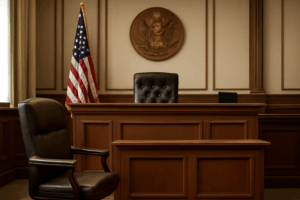The Process After a DWI Arrest in New Hampshire 
After being arrested for a DWI, the legal process begins immediately. The police will typically take you to the station for booking, where your personal information will be recorded, and you will undergo a series of tests. One of the first tests that may be administered is a breathalyzer test to measure your blood alcohol concentration (BAC). In New Hampshire, the legal BAC limit is 0.08% for regular drivers, and anything above that can result in charges.
Once you’ve been booked, you may be either released on bail or held in custody, depending on the circumstances surrounding the arrest. If you are granted bail, it’s crucial to make arrangements for a lawyer as soon as possible to guide you through the next steps. For first-time offenders, however, the immediate effects may feel less severe, but the repercussions of a conviction can be far-reaching.


James J. Tenn, Jr.
Attorney

Mary Elizabeth Tenn
Attorney

John J. Tenn
Attorney
Working hard to obtain the best results possible for our clients and fighting to protect their rights.
Understanding the DWI Charges in NH
A DWI charge can carry several consequences. In New Hampshire, there are different levels of penalties depending on your BAC level, whether you’ve had prior offenses, and if any other factors are present in your case, such as property damage or injury. If you are found to have a BAC above 0.08%, you are considered to be legally impaired and can face penalties that include:- License Suspension: For a first offense, the suspension is typically for nine months, though it can be longer depending on your BAC level.
- Fines: The fines for a first DWI conviction can range from $500 to $1,200.
- Jail Time: Jail time is not always a certainty for first-time offenders, but it is still possible if aggravating factors are involved.
Preparing for Your First Court Date
Your first court date, known as an arraignment, is an important step in your legal journey. This is where you will officially face the charges against you, and you will be asked to enter a plea of guilty, not guilty, or no contest. While the process may seem intimidating, understanding what will happen during this first appearance can help reduce the anxiety that comes with it. At your arraignment, you will be informed of the specific charges you are facing, and the judge will outline the potential penalties if you are convicted. This is also when the prosecution will present their evidence, and you will have the opportunity to speak with your attorney about how to proceed. The judge may set bail or release conditions depending on the nature of your case. You may also have the option of discussing plea deals at this point. A plea deal can sometimes reduce the penalties you face, especially if this is your first offense. However, this is something you should discuss thoroughly with your attorney to understand whether it is in your best interest.What Happens if You Plead Not Guilty
If you plead not guilty, the case will move to the next stage, which is the pretrial hearing. During this phase, both sides will present their evidence and arguments. Your attorney may file motions to challenge the evidence against you or question the legality of the stop or arrest. In some cases, evidence could be thrown out, which may result in reduced charges or even the case being dismissed altogether. The pretrial phase is a crucial part of defending yourself against a DWI charge, and it’s the time when the most strategic decisions are made. If the case goes to trial, the burden of proof is on the prosecution to show that you were indeed intoxicated at the time of the arrest. If they fail to meet this burden, you may be acquitted of the charges.The Consequences of a DWI Conviction
A DWI conviction in New Hampshire can have a lasting impact on your life. Beyond the immediate legal penalties, there are several long-term consequences that can affect various aspects of your life. For example, a DWI conviction can:- Impact Your Employment: If your job involves driving, a DWI conviction could lead to job loss or difficulty finding employment. Even if driving isn’t part of your job, a criminal record can still affect your career.
- Increase Your Insurance Rates: After a DWI conviction, your auto insurance premiums are likely to skyrocket. Insurance companies consider convicted drunk drivers to be high-risk, and this can result in significantly higher costs to maintain your coverage.
- Create a Permanent Criminal Record: A DWI conviction will stay on your criminal record, which could limit your ability to travel, obtain loans, or take certain professional opportunities.
